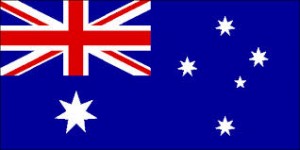 [Submission to the Australian Dept. of Foreign Affairs and Trade by 7 Australian NGOs.*] Executive Summary: This submission sets out our organisations’ views on the US proposals for intellectual property and medicines for the Trans Pacific Partnership Agreement (TPPA) negotiations, and our views on the position that should be taken by the Australian Government at the current stage in the negotiations.
[Submission to the Australian Dept. of Foreign Affairs and Trade by 7 Australian NGOs.*] Executive Summary: This submission sets out our organisations’ views on the US proposals for intellectual property and medicines for the Trans Pacific Partnership Agreement (TPPA) negotiations, and our views on the position that should be taken by the Australian Government at the current stage in the negotiations.
The United States Trade Representative proposed a set of extreme pharmaceutical intellectual property (IP) provisions for the Trans Pacific Partnership Agreement in 2011. These proposals, which were subsequently leaked, were met with outrage by national and international health and development organisations as they would severely restrict access to affordable medicines in the TPPA countries. Our organisations are strongly opposed to all elements of the US proposals.
Recently there have been reports that a sub-set of TPPA countries have made a counter-proposal that is largely based on the World Trade Organization’s Agreement on the Trade-Related Aspects of Intellectual Property Rights (TRIPS). This submission argues that the TRIPS Agreement is a far more appropriate standard for intellectual property than the US proposals as it allows significant flexibility for countries to determine the appropriate intellectual property regime for their own circumstances.
In this submission, we outline the risks the TPPA negotiations present for access to affordable medicines, and the opportunity they present for determining a more appropriate standard for IP that would enable countries to utilise the flexibilities available to them under the TRIPS Agreement. We argue that the level of IP protection currently reflected in the Australia-US Free Trade Agreement and in Australian law is inappropriately high for the developing countries and that the Australian Government should not pursue an AUSFTA-type outcome in the TPPA.
We set a number of general principles we believe the Australian Government should pursue in the negotiations on pharmaceutical IP. These are:
- Avoid provisions that would add to pharmaceutical expenditure in Australia;
- Ensure that the TPPA does not introduce ‘TRIPS Plus’ intellectual property rights in developing countries;
- Preserve and affirm countries’ ability to use legal flexibilities under the TRIPS Agreement and the Doha Declaration on the TRIPS Agreement and Public Health;
- Commit to transparency and civil society input in the TPPA negotiations; and
- Ensure aid effectiveness and regional responsibility.
The submission also outlines our views regarding particular provisions which may be discussed for the TPPA. We argue that:
- No patent term extension provision should be included in the TPPA, as this adds significantly to pharmaceutical expenditure. Failing this, if a patent term extension provision is included, it should be non-mandatory, allowing flexible implementation, limited to patents disclosing the molecule, and not permitted in relation to putative delays in the regulatory approval process.
- No ‘TRIPS Plus’ data protection should be included, as this results in unacceptable delays to the market entry of generics and presents an impediment to compulsory licensing.
- No patent linkage provision should be considered for the TPPA.
- The scope of patentability should not be expanded to cover new forms, uses or methods of using existing medicines, or to cover diagnostic and treatment methods. Pre-grant opposition should be retained.
It has been reported that the US may be considering proposing differential IP standards for developed and developing countries. Our organisations are opposed to this as it would still ‘lock in’ existing high levels of IP privileges in countries such as Australia, reducing domestic flexibility to alter them in future.
Click here for the full submission to Australia’s Department of Foreign Affairs and Trade
* Civil Society Groups endorsing the submission:
- The Public Health Association of Australia (PHAA)
- The Australian Fair Trade and Investment Network (AFTINET)
- The Australian Federation of AIDS Organisations (AFAO)
- Médecins Sans Frontières Australia
- The Asia Pacific Network of People Living with HIV (APN+)
- Palliative Care Australia
- Australian Medical Students’ Association (AMSA)




